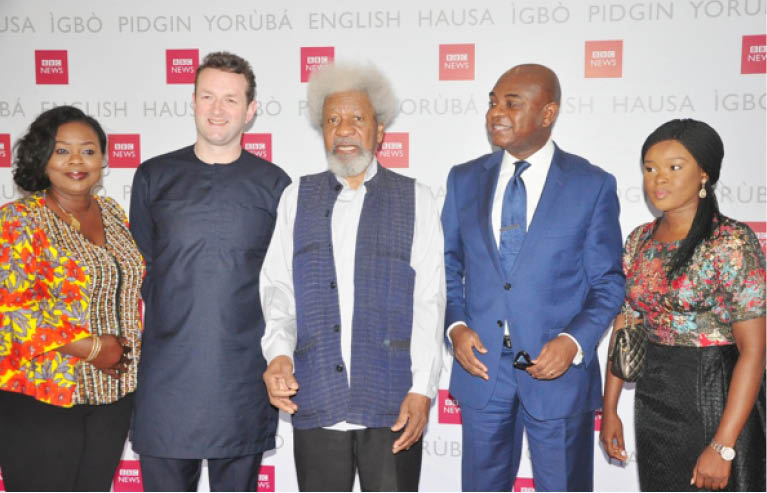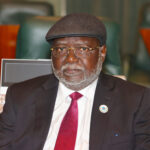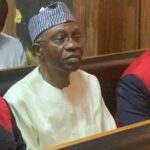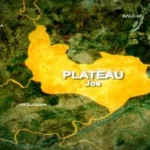Few weeks to the general elections in Nigeria, the BBC is worried “fake news” may be more believable than traditional media.
Fake news is spreading across the world. In Nigeria, its effect has had far-reaching repercussions. Information Minister Lai Mohammed, who had talked repeatedly about the danger of fake news, attributed the escalation of the farmers and herders crisis to misinformation.
But concern over fake news grows as Nigeria prepares for 2019 general elections holding in February and March. This is understood. Fake news is a dangerous trend. Distorted information leads to misinformed people. That can go beyond just influencing votes.
Recently, rumours spread about a presidential “clone”. Rumours that President Muhammadu Buhari had been replaced by a Sudanese doppelganger had been supercharged by social media and even the traditional media.
“There is really no attempt to interrogate these things,” said Vice President Yemi Osinbajo, warning that if the rising trend of fake news is not tackled, “we may get to a point where nothing is believed.”
Mr Osinbajo made the remarks in a keynote speech on the effect of misinformation at Beyond Fake News Conference organised by the British Broadcasting Corporation (BBC) in Abuja with the theme “Nigeria 2019: Countering Fake News”.
‘Beyond Fake News’ is an initiative launched by the BBC in November 2018, aimed at finding ways to address misinformation through events, media literacy programmes, and journalistic reports.
The conference, which discussed how to prevent misinformation during and after the election period, had as panelists, Nobel Laureate Wole Soyinka, President, Nigerian Guild of Editors, Funke Egbemode; Founder, Bella Naija, Uche Pedro; the INEC chairman, Mahmoud Yakubu, represented by Festus Okoye and the director of BBC World Service Group, Jamie Angus. The discussion was moderated by Adesuwa Onyenokwe, publisher, Today’s Woman Magazine.
Mr Osinbajo, in his address, explained how fake news nearly caused a problem in his marriage.
He said his wife once called him, asking what he was doing with strippers because a blog had reported that he was caught with them.
“So there has been this story in a very famous blog that said ‘Osinbajo caught with strippers’. And there was a photograph of me standing between two perfectly clothed ladies by the way. But just underneath it, the same ladies now not wearing much, wearing very little. As it turns out, I had, in fact, take photographs with these two ladies at an entertainment event when they were perfectly clothed. But by the time the story was put out, it was though I had also taken a photograph with them at the time they were not clothed at all.”
The vice president said aside the damage done to the credibility of public information, the capacity of fake news to cause great harm was not in doubt.
Fake news thrives mostly on social media. Still, Osinbajo said it will be impossible to regulate the social media without substantially infringing on the fundamental human rights, especially freedom of expression.
He however urged the traditional media to do more investigation and fact checking as part of efforts to curb fake news. “Going beyond just fact checking, a bit of information and more interrogation of some of these issues and offering some independent opinion might be quite helpful.”
The vice president also suggested increased collaboration among countries and a situation where countries would draw up conventions or enter into agreements that would help regulate the social media much more effectively.
At a panel session, Prof Soyinka, said fake news had become a real threat to humans and, if unchecked, could start third world war.
“I made a statement before that if we are not careful, World War III will be started by fake news and that fake news will be probably generated by a Nigerian,” he said.
He shared his experience as a victim of fake news, saying “I have been killed on so many times, literarily.”
He said that numerous false statements had been wrongly attributed to him. “You may find a statement that was attributed to you in a kind of language which you will never use.”
The literary giant said, “For example, during the last presidency, statements attributed to me were saying that I said that it served President Jonathan right for marrying an illiterate woman. I never made any comment whatsoever about that lady, and suddenly there it is steering me in the face.”
He said since we are dealing with a technological issue we need to use technology to defeat it. “We need to fight fire with fire.”
He said social media like Facebook should be called to order and that they need to wake up to their corporate responsibility.
Mr Okoye, who represented the INEC chairman, said the commission has recognised they need to communicate with the public and that some past problems are a result of not communicating well.
One of the things that propel fake news is the inability to put out official information, Okoye said.
He said INEC will be holding weekly briefings with the press to help counter false news about elections and urges security agencies to be watchful. “One misinformation deliberately planted can lead to breakdown of law and order.”
For Pedro, said fake news has become very sophisticated. It was sad that a lot of fake news media platforms “mimic real websites with the same templates”.
“They also contain a lot of fake news information embedded in the truth. The rate of fake news has really accelerated, and is increasingly highly sophisticated,” she said.
She however said, though fake news is financially motivated, the circle needs to be broken. He also said “there is need for re-orientation of the people to fact-check anything before sharing or forwarding.”
Director of BBC World Service Group, Jamie Angus, said there is so much to lose “if we don’t tackle fake news. We need to create an alternative for fake news and disinformation.”
He said supporting free speech is the key in the fight against fake news and is the cornerstone of democracy.
Angus spoke about the power of fact-checking in the fight against fake news. He suggested that traditional media in Nigeria could come together and share each other’s fact checks, saying collective strength could be better than individual strength.
Meanwhile, the Force Public Relations Officer, Jimoh Moshood, in his submission said the traditional media needs “to disconnect from the social media” to curb fake news.
“Most of the stories you see on social media, if not corrected on time, would be on the traditional media and then all goes haywire,” he said.




